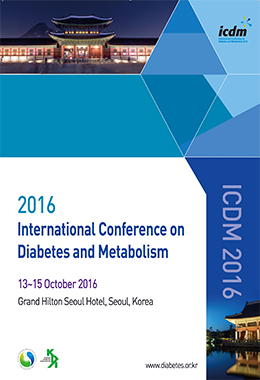Objective: Low grade inflammation in adipose tissue is a major contributing factor for the development of insulin resistance in obesity. It was proposed that high fat diet (HFD)-feeding leads to macrophage infiltration in adipose tissue to contribute to insulin resistance. Plasmalogens, a key structural component of the cell membrane, are highly distributed in nervous tissues and defects in plasmalogen biosynthesis are related to several inherited neurologic diseases in human. In addition, recent studies have found that alterations in plasmalogen levels may be related to metabolic diseases and inflammatory diseases. This study examined the possible protective role of plasmalogens against adipose tissue inflammation and whole body insulin resistance.
Methods: To evaluate whether plasmalogen depletion can affect systemic energy metabolism, we generated KO mice of glyceronephosphate O-acyltransferase (Gnpat), the rate-limiting enzyme for plasmalogen biosynthesis.
Results: Body weight gain of Gnpat+/- mice fed a HFD for 8 weeks was comparable to WT mice. However, HFD-fed Gnpat+/- mice exhibited significantly higher fasting plasma insulin levels, despite comparable fasting plasma glucose levels. In addition, HFD-induced glucose intolerance and insulin resistance measured by IPGTT and ITT, respectively, were exacerbated in Gnpat+/- mice. Conversely, administration of alkyl glycerol, a precursor of plasmalogen biosynthesis, ameliorated HFD-induced adipose inflammation and insulin resistance. Alkyl glycerol dose-dependently decreased LPS-induced increases in the expression of inflammatory markers in RAW 264.7 macrophage cell line.
Conclusion: These results suggest that plasmalogens are an important regulator of obesity-associated adipose tissue inflammation and systemic insulin resistance.




